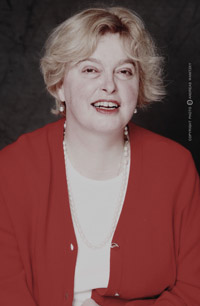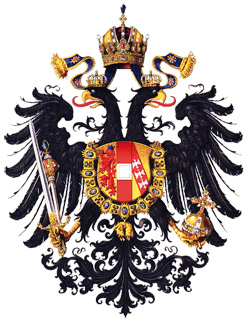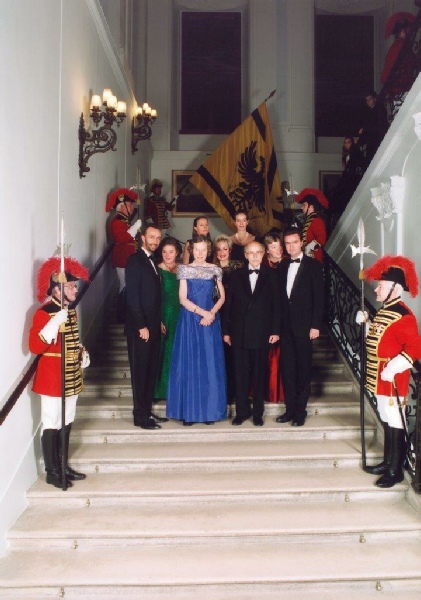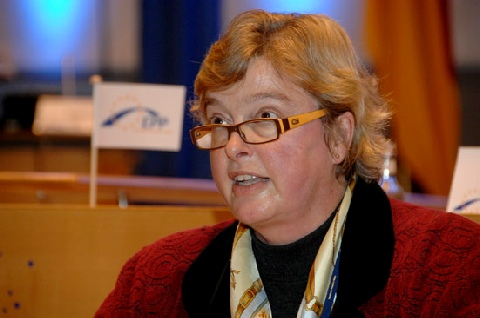


A L L R I G H T S R E S E R V E D © 2 0 1 4 C A N A D A E X C L U S I V E
D e s i g n R A Y P H O T O s t u d i o, C r e a t e d b y WEB -
CANADA Exclusive
Mariánska 12
811 08 Bratislava
Slovak Republic
Tel.: +421 252 932
895
Fax: +421 252 932 896
Cell: +421 911 424 435
[email protected]
s p e c i a l
Walburga Habsburg Douglas
INTERVIEW with 
The ARCHDUCHESS WALBURGA
of AUSTRIA
THE GRANDDAUGHTER OF CHARLES I, THE LAST EMPEROR OF AUSTRIA. SHE IS A GERMAN-
She is also known as Archduchess Walburga of Austria Archduchess and Princess Imperial
of Austria, Princess Royal of Hungary and Bohemia, Countess Douglas. Born in Berg
am Starnberger See, Germany, the daughter of Otto, Crown Prince of Austria and Princess
Regina of Saxe-
Douglas married the Swedish Count Archibald Douglas on 5 December 1992 in Budapest, Hungary. They have a son, Count Mauritz Otto Wenzel Douglas (born 30 March 1994).
She studied canonical law to the doctoral level in Salzburg. And in 1983 she studied at the National Journalism Center in Washington, D.C.
Since 2003 she is the chairman of the local branch of the Swedish Moderate Party in Flen and on the board of the regional organisation of the party in Södermanland. She is a member of the board of the Jarl Hjalmarson Foundation since 2005, a foundation closely linked to the Moderate Party.

In 1999 and 2004 she ran for the European Parliament for the Moderate Party, in 2002 and 2006 she ran for the national parliament (riksdagen). She was elected, 17 September 2006 to the Swedish Parliament, in an election which showed the greatest support for the Moderate Party since 1928. Chairman of the Swedish Parliamentary delegation to the OSCE since 2006. She was reelected for the Swedish Parliament in 2010.
You were born in Luxembourg but most of your childhood and your growing up you spent in Bavaria. How do you recall your childhood?
As a matter of fact, I am born in Bavaria in Starnberg. My sister Gabriela was born
in Luxemburg, because when I came, my parents had already moved to Pöcking, my parents
were very good in educating us, as a main center-
Habsburg’s are well known as the Austria-
No, the fact of not being able to travel to Austria felt strange, considering that we all had Austrian passports with the notice inside, which read: This passport is valid for all countries of the world except Austria, and somehow I think that through this, we all decided that we would move to Austria when it became possible, I for example studied law in Salzburg, and enjoyed living there for four years.
Being born in Luxembourg, raised in Bavaria and having roots in Austria, which you could not enter for many years, must have changed your perception of your origin. Now you are married to a Swedish Count, too. So when somebody asks you where you are from, which nationality do you identify yourself with the most?
I always say when asked, I am a European because as you rightly say, in our case the borders of states are nothing that closes us in. During my time in the Swedish Parliament I said: I am Swedish to those who asked, because my Swedish is not without an accent.
Your family and ancestors were very influential rulers in Austria-
Politics and history were constantly discussed in our house, since this was what my father worked with.

90 birhtday of Otto von Habsburg, Karl with his parents and brother and sisters
You come from an influential political family, who probably gave you a good starting point for a political career. Was it your choice to study to become a lawyer or was it basically expected from you?
Well it was not expected from me, my parents listened very much to our own wishes, but I just thought politics was fascinating and decided, that this would be the most exciting work I could do.
You are a co-
Paneuropa is the oldest organization working for the unification of our continent,
it was founded in 1922 by Richard Coudenhove-
a) Europe is the bigger Europe, which was very important during the time of the Iron Curtain, because we were the only organization saying that Europe does not stop at this unnatural border, the countries behind the Iron Curtain have the same right to Europe as we.
b) Europe has Christian roots, this is why Paneurope has the cross in the center of its symbol
c) Europe must be the continent that works for social justice and must be built on the principle of subsidiarity.
d) Europe must be the continent working for freedom and liberty, also especially important in the time of the Iron Curtain.
You were also one of the organizers of the Paneuropea-
I must stay I still consider this as the most exciting day in my life, because working
for Paneuropa, understanding full-
You are part of the Swedish Moderate Party now. Do you know how you are perceived by Swedish people? Do you even care what other people/politicians think about you?
Well asking, how I am perceived there is a big difference between the people who share my political views and since the Moderate Party is a conservative party, those believing in Socialism are not so keen on my political engagement.
You have finished a lawyer school, yet you choose to go a political way. Have you always inclined to his path or did this transition come to you naturally?
Yes, this path came completely naturally to me, already during my studies I worked one week every month in the European Parliament and I only thought, it would not be wrong to study something until graduation, because politics should not be a professions.
You were re-
Yes, it was great being able to sit for eight years, two mandate-

Your husband’s family is Swedish, although, they descended from Scots. Have you ever visited Scotland? If so, did you like the country?
Yes there was a time when we went to the Highland Games in Oban, dancing the reels and I like Scotland very much, a fabulous country, and I hope to go there more times in the future.
It is well-
Well I think it is important to get active in such an important question, and it is lying precisely in line with my political ideas, for me it is important that these questions are not forgotten.
During communism there has been a lot of injustice done not only against other people but also against you. Did you pay attention or has been concerned with this topic due to strong personal connection as well?
No it is more because of my political ideas than anything else.
You have a 21-
I am extremely proud of my son, but I let him choose his own way, because only then he will happy to study, if I should force him to anything else. I would also have to push him behind his books. As a matter of fact he studies International Relations in Britain, and is proud and happy with it.
Interview by Veronika Cervenak



